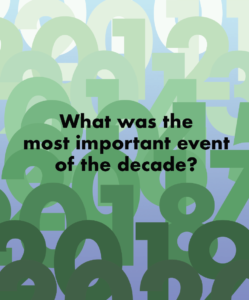Sandy Hook – Syndey Alleyne ’23
Since the Sandy Hook Massacre, on December 14, 2012, there have been more than 50 more shootings of similar caliber; each one gave our nation yet another reason to improve its gun reform policies and gun safety laws. Still, nearly 12 years later, the parents and family members of the victims of Sandy Hook are fighting for justice, most recently with some families receiving a 2021 trial date to argue their landmark lawsuit against Remington Arms Co., the company that produced the gun that killed their children.
Growing up 45 minutes from Newtown, Conn., the town where the shooting occurred, I deeply felt the effects of the shooting. I remember going back to school the following Monday and not being able to open the doors. The only way to open them was via an intercom system or with a special key fob. At the time, I was in first grade, but I knew what was going on. This was the first time in my life that everything I had heard on the news became real, and I truly understood what had happened and its horrifying implications.
Now that I am in high school, I have grown up reading headlines detailing how more and more teenagers are falling victim to gun violence, each story instilling more fear within me. It has grown to the point where I no longer feel fully safe in public areas, and I’m always going through the “what ifs” in my head. What if tomorrow I wake up and see that there was a shooting at the school my best friend goes to? What if my mom gets a phone call saying that the hospital my father works at is on lockdown due to an active shooter? For me, and many of my peers, all of this insecurity started after the shooting at Sandy Hook — when we first saw kids our age affected by such a situation. The Sandy Hook school shooting was the first of many, and it brought gun reform to the forefront of American politics and conversation, which is slowly but surely leading to change for the better.
President Donald J. Trump P ’00 – Wesley Boatwright ’22
The American 2010s was a decade defined by change, none more important or more harrowing than the transformation of American politics. The election of President Donald Trump P ’00 in 2016 revealed the deep anger bubbling in the United States heartland. Trump capitalized on a rage felt by the Americans left behind by previous politicians, preaching that their lives, like America, would be “great again.” Most terrifying of all, the political landscape in the U.S. transformed, and it now no longer requires an ounce of truth. Trump rode a wave of misinformation and downright lies straight to the White House.
The shift in American minds, from valuing the truth to believing that it doesn’t matter, is the most significant development of the decade. Fact became indistinguishable from fiction, and the president believes that he is invincible. Voters grew to be so devoted to their beliefs that no matter what their own side does, the opposing side is worse. Trump forged a chasm, dividing the country in two. History will remember the next decade by how the country recovers in a post-Trump era. The 2010s, for better or for worse, is the decade of Donald Trump.
Declining Poverty Rate – Stephanie Chen ’23
The past decade has been a tumultuous ten years. From the increasingly polarized political stage to the rapid onset of climate change to the (statistically speaking) 31 national emergencies currently facing the United States, it seems that the course of our future is all downhill from here. However, even with this constant influx of tragedies, there has actually been quite a lot of positive news stories this decade, and one in particular is worth remembering, especially in our darkest moments.
In the past decade, we have reached an all-time low for the global poverty rate. This is the result of a massive 25-year-long effort that has seen more than a billion people pulled out of poverty, and it is a reflection of a new global order that is finally beginning to consider those at the bottom.
To humanize this statistic, this means that around the world, maybe for the first time in generations, 7 billion people are now able to meet a basic threshold of livelihood. They are able to afford water, food, shelter, and other basic goods. Above all, they can lay the groundwork for freedom to achieve their dreams.
Of course, every realist knows that there’s a pessimistic side to everything, and even with people being lifted out of poverty, there is still a lot of dark matter to point to: the undertaxed millionaires, the gender and racial discrimination of poverty, and the jeopardization of this trend with changing political currents. However, in a time of such great anger and sadness, this is something to hold onto.
Change – Mealy Cronin ’23
The 2010s — a decade which saw the rise of limitless streaming television; a decade when Twitter, Instagram, YouTube, and TikTok emerged as the primary means of communicating and disseminating information — ushered in an era in which the farcical became reality, facts became suggestions, and fakes and liars rose to positions of power or created multi-billion-dollar companies. From politics to industry, culture to climate, the 2010s set a course where the axiom was nothing is as it appears, no one was perfect as perfect as they seemed, and no one could trust anyone. There was much to despair over in the past decade: climate events causing catastrophic tsunamis and earthquakes, mass shootings at home, and terror attacks abroad. And while so much was terrible in the past decade, there remains a glimmer of hope for the next ten years. In the past year, a growing youth movement has risen to challenge the status quo in the areas of climate policy, gun violence, and civil rights for all. The decade began with the financial crisis felt around the world and may end with the impeachment of a U.S. President for only the fourth time in history. More than anything, the 2010s brought change — good and bad.
Meetings with Kim Jong-Un – Pranav Pendri ’22
The most important events in the 2010s were American President Donald Trump’s P ’oo meetings with Kim Jong-Un, dictator of North Korea. Former President George W. Bush famously referred to North Korea as a member of the “Axis of Evil.” His declaration was in part due to the communist country’s subjugation of its citizens, but also referred to North Korea’s nuclear capabilities. North Korea is believed to have between 20 and 60 nuclear bombs, enough to vaporize cities containing millions of people.
On June 12, 2018, Trump met with Kim in Singapore, where the two signed an agreement calling for stability and peace. They met again in Vietnam, but on June 30, 2019, Trump, at the request of Kim, became the first American president to step foot in North Korea. Trump and Kim’s meetings foreshadow a more harmonious future without the threat of nuclear weapons. I am optimistic that North Korea will act with clairvoyance and proceed further with denuclearization.
Youth Activism – Niki Gummadi ’21
The most important thing that has happened in the last decade is not a single moment or invention, but a movement. In the past ten years, there has been a wave of youth activism, and this has led to change from a microscopic to a macroscopic level.
In my hometown of Ocala, Florida, the year 2016 saw a student-coordinated rally in response to a transgender bathroom ban put in place by the local school board. After a tragic shooting in 2018, students in my home state refused to be complacent and were able to mobilize young voters like never before, leading to a 12% increase in Florida’s youth voter turnout. Students in Ferguson, Mo., flooded the streets after the death of Michael Brown, one of their peers. These protests started the nationwide Black Lives Matter movement. Young people in 2019 were able to command global attention with the formation of the Youth Climate Movement and the organization of worldwide climate strikes. The political issues of the past ten years have been defined by the youngest generation, and I have faith that the next ten will be, as well.
The Rise of Data & the Internet – Julian Hurley ’22
In the past decade, the internet has become significantly more vital and intrinsic to everyday life. In 2019, according to Pew Research Center, 96% of American adults own a cell phone of some kind, and 81% own smartphones. An estimated 3.9 billion people around the globe have internet access.
However, the increase in internet usage brought an increase in non-consensual data collection. Throughout the 2010s, many Americans feel that their personal data cannot be protected in this new digital era. Sixty-two percent of American adults believe that it is impossible to go through everyday life without companies collecting their data, and 84% say that they have little to no control over the data that the government collects.
After Facebook’s Cambridge Analytica scandal, in which Facebook gave data to third parties without user consent, users’ trust in social media platforms was shaken. In the coming decade, new standards for privacy and security must be implemented to avoid cybersecurity threats.
Development in Saudi Arabia – Sabahat Rahman ’21
I moved to Saudi Arabia in 2012. As an expatriate coming from the United States, the differences between American and Saudi society were glaring. Women’s rights were far behind those of almost every other nation. The country itself was barred to any tourists, except to those visiting for religious purposes, and things I took for granted (like cinemas) were banned.
When I think about something remarkable that happened this decade, I know I want to talk about my home: Saudi. As I reflect upon my time in the nation, I realize that I moved there at an exceptional time. Within the span of seven years since my move to Saudi, I witnessed some of the most radical changes the country has seen in its entire history. Women are now allowed to drive, jog outside, go out without a man, and vote in municipal elections. The nation’s first ever cinemas are open, BTS and Pitbull have performed in the large cities, and construction for a theme park 2.5 times as big as Disney World is underway. These are only a few of the changes that Saudi has seen in this exceptional decade, and I cannot wait to see what will happen in those to come.





